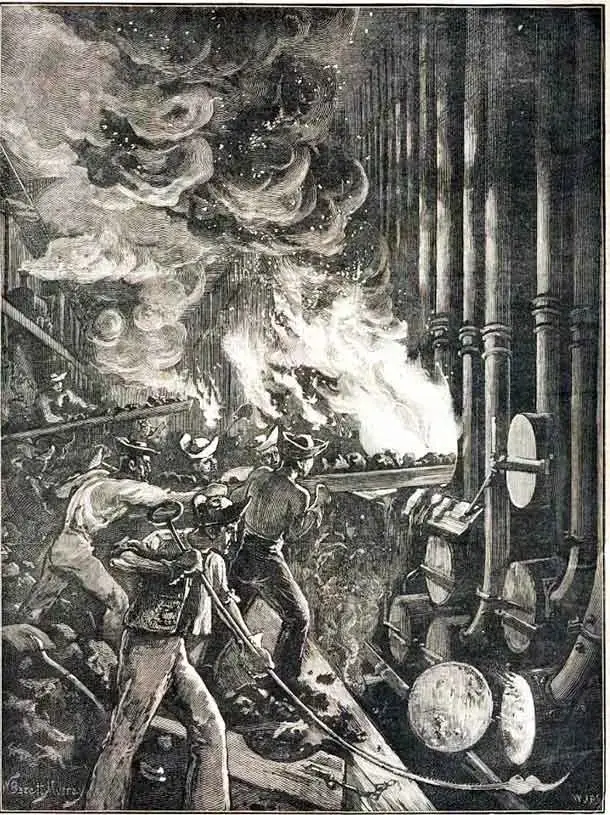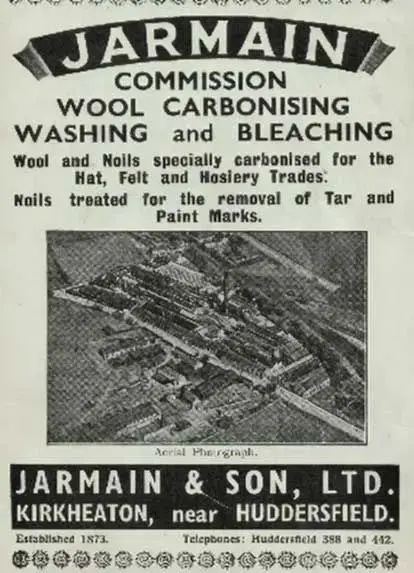
Hand firing the red hot retorts
Engraving, W.J.P.S after W. Bazett Murray.
Credit: Science Museum Group Collection Online.
Iron Man
"The Gas Industry was one of the first industries to introduce automation, when at the turn of the century the automatic stoker (Iron Man) replaced hand stoking. Constructional engineering was a dangerous business and several men lost their lives. I learnt this song from an old Navvy who had worked on the job. The “Boom, Boom, Boom” was the noise made by the “Iron Man” when working."
Original note by Tommy Daniel.
The gas industry was the first industry to reap the benefits of the invention of the mechanical stoker in the early 1900s.
Previously teams of stokers had to physically charge (shovel coal into) the red hot upper retorts by hand, and draw out the residue, ash, from the lower ones underneath.
The advantages of the mechanical stoker far outweighed hand firing the retorts. Besides the obvious labour saving cost, only one or two men were needed to charge the machine, instead of a team. The mechanical feeding of the fuel provided a more constant and even feed, and it also prevented the loss of heat due to not having to keep opening the fire doors. Furthermore it was a much safer, and less arduous task for the machine operators, than it was hand firing the retorts.


